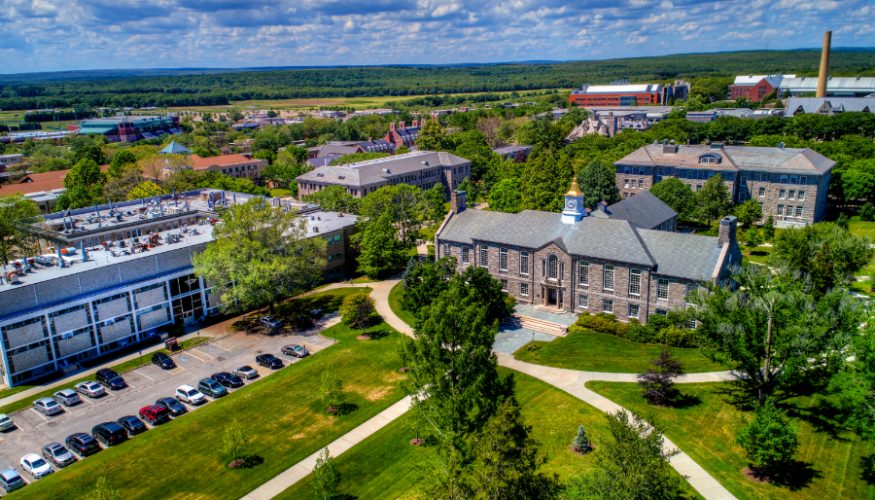Study co-authored by URI professor may link faulty brain drainage systems to Alzheimer’s

Researchers from New England Council member, University of Rhode Island, have found a possible link between malfunctioning clearance systems in the brain and the onset of Alzheimer’s disease.
URI, in collaboration with research teams from Yale School of Medicine and Stony Brook University, worked in a lab with rodents and found that when Cerebral amyloid angiopathy, or CAA, was present, the glymphatic system and lymphatic drainage were not working correctly to “flush out waste.” CAA is a condition seen in older patients who suffer brain hemorrhages or who have been diagnosed with Alzheimer’s.
When discussing what this research could mean for those with CAA or Alzheimer’s disease, William Van Nostrand, a neuroscience professor, and co-director of the George & Anne Ryan Institute at URI stated, “If we can find ways to preserve or increase glymphatic clearance, this could aid in preventing or decreasing accumulation of amyloid-beta and other noxious substances from the brain that contribute to CAA and Alzheimer’s disease,” Van Nostrand said.
The New England Council commends the University of Rhode Island for its research into how Cerebral amyloid angiopathy and Alzheimer’s disease can be prevented.
Read more from Providence Business News.